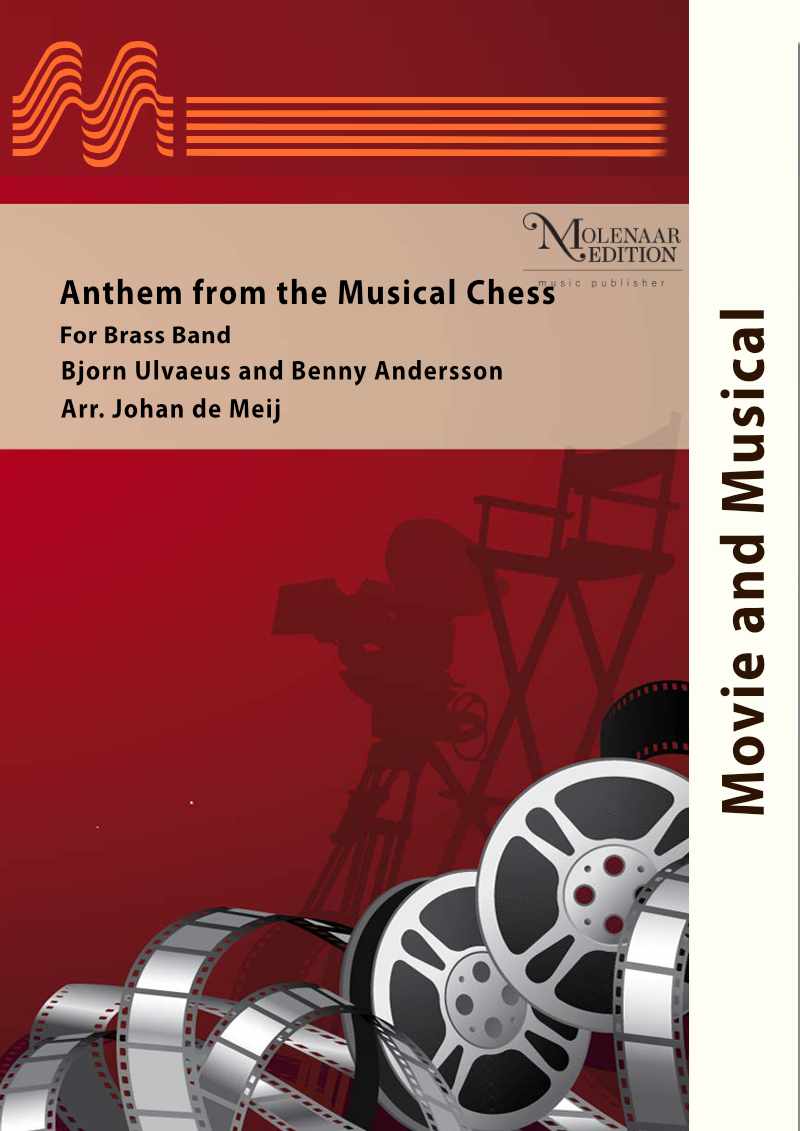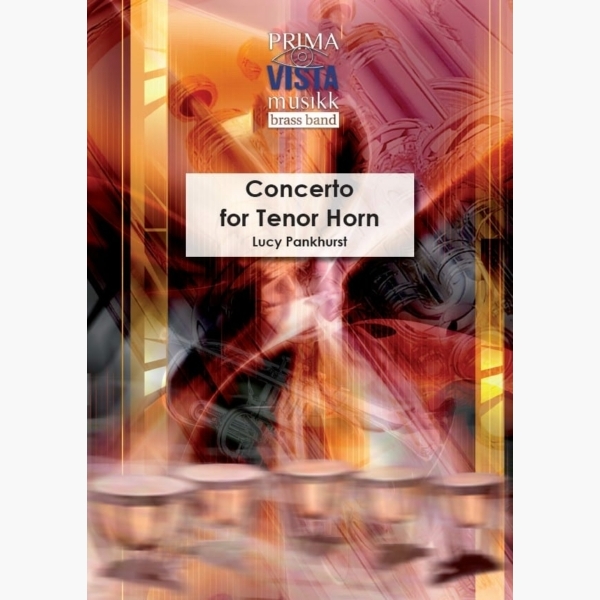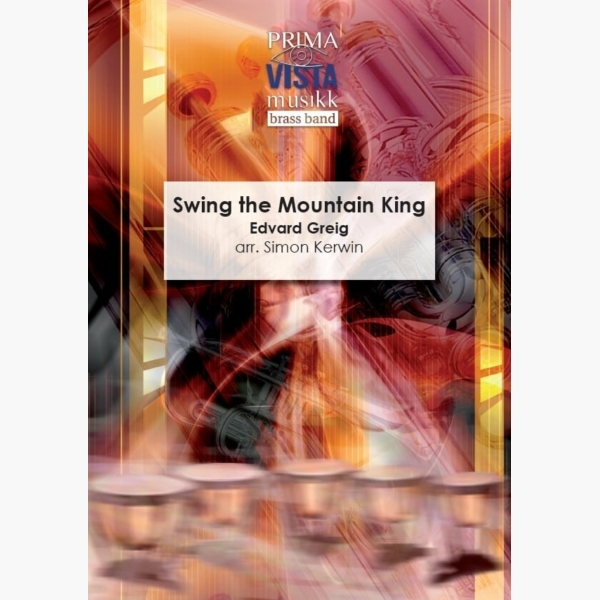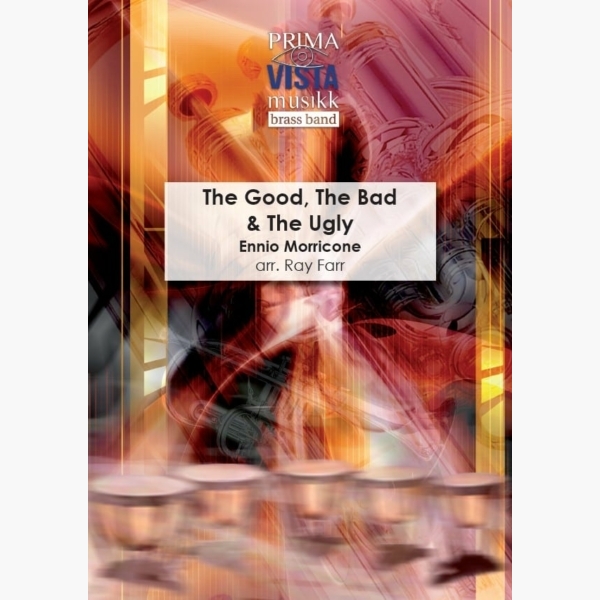Results
-
 £42.00
£42.00Anthem From the Musical Chess - Bjoern Ulvaeus/Benny Andersson/Johan de Meij
Anthem is the most well known song from the popular musical "CHESS" written by the male half of the Swedish pop group ABBA, Bjoern Ulvaeus and Benny Andersson. Anthem has been brought out as a separate arrangment (originally found in Highlights from CHESS) and the text for vocal soloist has been added. The arrangment is by none other than Johan de Meij.
Estimated dispatch 10-14 working days
-
£72.00
The Incredibles - Michael Giacchino - Lars Erik Gudim
Michael Giacchino (1967) has become one of the great composers scoring for Film, Television and Video Games. Music in the movies "Star Trek", "Ratatoille", "Mission Impossible III", "Sin" and "The Incredibles" has come from his hand, but even more known should be the music from the Television shows "Alias" and "Lost".In "The Incredibles", music with high energy and a lot of wind players fits well. To play this music with a wind band takes good care of this intentions. The super heroes are matched with music in all dimensions. This is well taken care of in the arrangement by Lars Erik Gudim.
Estimated dispatch 7-14 working days
-
 £64.95
£64.95Concerto for Tenor Horn - Lucy Pankhurst
I wrote this tenor horn concerto for Owen Farr in 2002, whilst we were both studying at the RNCM in Manchester. I had never heard a brass player like Owen before and was stunned by his technical brilliance as well...
Estimated dispatch 5-7 working days
-
 £24.95
£24.95Swing the Mountain King - Edvard Grieg - Simon Kerwin
'In the Hall of the Mountain King' was composed by Grieg as part of the incidental music for Henrik Ibsen's play Peer Gynt. A fantasy story written in verse, Peer Gynt tells of the adventures of the eponymous boy. The...
Estimated dispatch 5-7 working days
-
 £29.95
£29.95The Good, The Bad and The Ugly - Ennio Morricone - Ray Farr
This humourous theatrical arrangement takes a satirical look at the many "spaghetti" Westerns. Ennio Morricone's immortal theme is the basis for a "shoot-out" between "Clint Eastwood" and a "Mexican Bandit", but (un)fortuantely the conductor gets caught in the crossfire! A...
Estimated dispatch 5-7 working days
-
£29.95
INVINCIBLE ARMY, The (Brass Band Set) - Erik Leidzen
When the New York Staff Band toured England in 1960 they featured much new music written for them by Erik Leidzen, including this march. The trio section is in the unusual key (brass band pitch) of Db major, a major third away from the opening key of F major, rather than the more predictable subdominant of Bb major. This presents a technical and mental challenge to the players but provides a particularly brilliant sonority when played in tune!
Estimated dispatch 7-14 working days
-
£24.95
SWAN, The (Trombone or Euphonium Solo with Brass Band Set) - Saint-Saens - Ray Steadman-Allen
Featured by many Euphonium soloists over the years, the main aim of the soloist here is to re-create the sonorous sound of the cello, for which instrument it was set in its original form in 'Carnival of the Animals'.
Estimated dispatch 7-14 working days
-
 £64.40
£64.40The Sky Zone - Dean Jones
We imagine ourselves in higher spheres with this composition for four-voice flexible instrumentation. Specialist Dean Jones once again guarantees a lot of playing pleasure for our young musicians.
Estimated dispatch 5-14 working days
-
 £174.99
£174.99The Turing Test - Simon Dobson
Alan Turing is considered the father of modern computational science and much, if not all, of our modern computer technology and the connectivity that we now take for granted is born of the work of this one great, but troubled man. His famous test was designed to prove whether artificial intelligence (AI) could successfully imitate human thought. The single movement of The Turing Test is essentially non-programmatic, but it does seek to show something of the emotion and colour of Turing's life in its different sections. The composer employs bi-tonality and complex rhythms to show opposing worlds colliding. At the end of each test, we must decide: has true AI beenborn?
Estimated dispatch 5-14 working days
-
 £76.99
£76.99The Rebellion is Reborn - John Williams
From Episode VIII of the Star Wars saga, here is a masterful setting for mature bands. Based on the concert edition created by Mr. Williams himself, The Rebellion is Reborn brings the excitement and drama of The Last Jedi to the symphonic stage.
Estimated dispatch 5-14 working days
